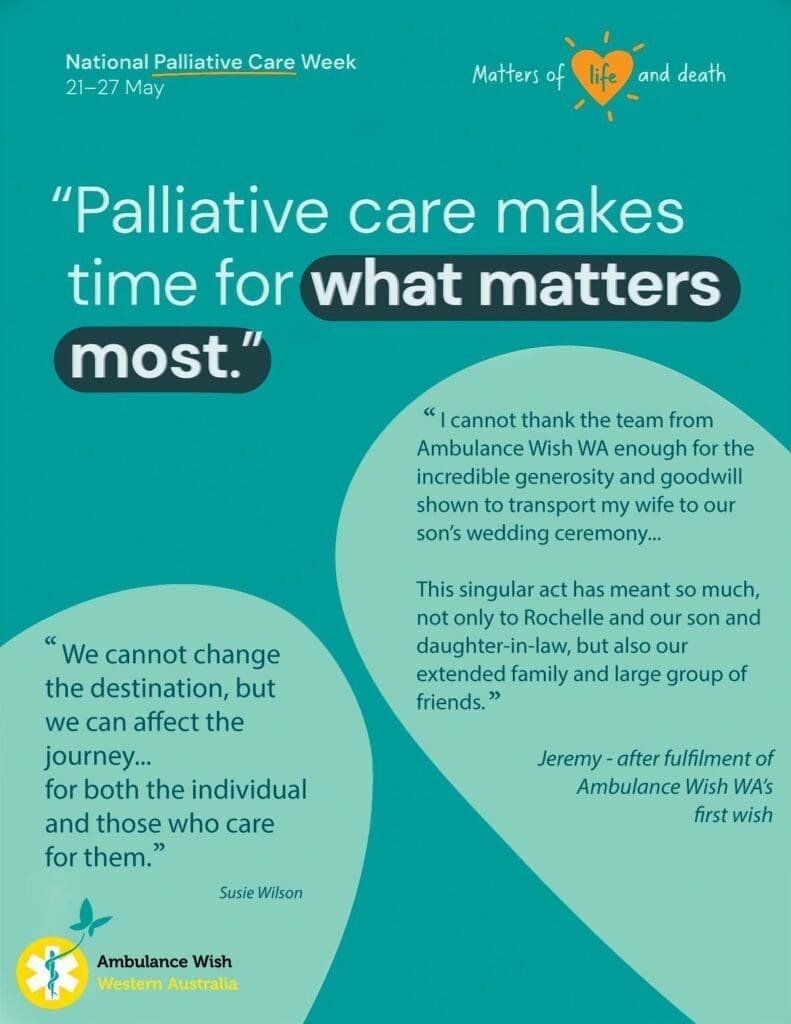Welcome to National Palliative Care Week – the nation’s largest annual initiative to raise awareness about palliative care and its benefits.
The final stages of a person’s terminal illness can be a highly challenging, emotional time and the focus of care usually changes to making them as comfortable as possible in order to make the most of the time they have left. Depending on the circumstances and illness, this period of care, often referred to as palliative care, can last days, months or years. The ultimate goal of palliative care is to improve quality of life for both the person and the family, regardless of diagnosis.
General Practitioners, Registered Nurses, Nurse Practitioners, allied health professionals, volunteers and carers – as well as specialist palliative care services – all play a critical role in delivering quality of life to people of all ages living with life limiting illness. Here at Ambulance Wish Western Australia we would like to both acknowledge and thank them for all the work they do.
Camilla Rowland, Chief Executive Officer at Palliative Care Australia (PCA) explained, “We understand that death and dying is a difficult subject to talk about and engage with, but this year we have some powerful voices joining the campaign to inspire and start important conversations.”
“National Palliative Care Week and the stories we will share will open the door on the full scope and impact of palliative care and the quality of life it delivers. I hope it provides a moment of reflection for all Australians to think about and plan for the last chapter of life,” Ms Rowland said.
Ambulance Wish Western Australia is a dedicated, volunteer-run service which fulfils final wishes for those receiving palliative care, or who are terminally ill, allowing them to celebrate their life and passions one last time. It seeks to provide care, even after accepting that death is imminent, by easing the suffering of the terminally ill by allowing them to experience joyous family occasions, visit family and friends, meaningful places, or do simple everyday activities that would otherwise be out of reach.
In terms of science, the act of fulfilling final wishes is difficult to quantify, but it’s more about personalisation and a humanistic approach. Simply, it’s all about caring and adds a quality of life to a person’s last days. For individuals, eliciting and customising the wishes honours them by celebrating their lives and dignifying their deaths. For families, it creates positive memories and individualised end-of-life care for their loved ones. For clinicians, it promotes inter-professional care and humanism in practice, integrating palliative, spiritual and critical care.
Simply put, fulfilling wishes to those who have little time left leaves a lasting and memorable impact on all those involved.
Fulfilling wishes, celebrating lives!

